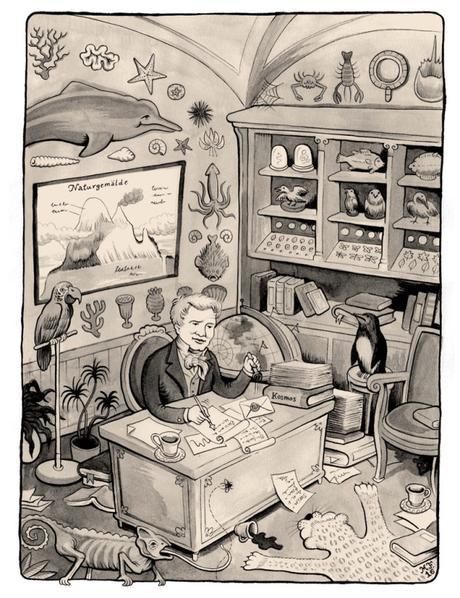
The Prussian scientist Alexander von Humboldt has occupied a special place in my heart since I read Andrea Wulf‘s The Invention of Nature last year. Before then the name Humboldt had a vaguely familiar sound, probably because of the many places and species named after him, but I admit that I knew almost nothing about the fascinating man behind it.
Sure enough, he was another privileged white man, but he was a pretty good one at that. More than 200 years ago he openly spoke against slavery, supported the independence of the American colonies and he had little patience for kings and emperors. He preferred to travel the world, cataloguing species, rather than enjoying the comforts of the court and even when on the verge of bankruptcy he always helped young scientists with the little money he had. His work inspired some of my personal heroes, like Darwin and Haeckel, but also writers like Goethe and Thoreau. And yet, he has been almost completely forgotten outside the scientific community. This is probably for many complex reasons, but as Wulf explains mostly because:
He was one of the last polymaths, and died at a time when scientific disciplines were hardening into tightly fenced and more specialised fields. Consequently his more holistic approach – a scientific method that included art, history, poetry and politics alongside hard data – has fallen out of favour. By the beginning of the twentieth century, there was little room for a man whose knowledge had bridged a vast range of subjects. As scientists crawled into their narrow areas of expertise, dividing and further subdividing, they lost Humboldt’s interdisciplinary methods and his concept of nature as a global force.
In brief, he didn’t make any single revolutionary discovery but he profoundly changed the way we think about nature . While he was alive, Humboldt was an international celebrity and – in my opinion – an excellent example of the role scientists should have in society. When he died (on this day in 1859) the whole world mourned his loss. This is why I have decided to take some time off my other projects and remember him, in my own way.
I want to encourage others to discover Humboldt and I hope that, maybe, his story could inspire some scientists to ‘crawl’ out of their niches and follow his vision. We badly need more like him.

